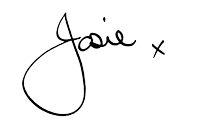Real Well-being
With the rapid pace of change and the use of technology reaching unprecedented levels, it’s not surprising that our own ‘systems’ – our brain and our body – aren’t quite keeping up, threatening our sense of real well-being. This month I explore what’s really going on and what you can do to better handle it.
Wellbeing has been described as being a state of health, happiness and comfort. Today, we’ll explore the major contributing factor to our sense of wellbeing, and how you can keep a handle on it when you can’t control what’s happening around you.
Neuroscience is beginning to acknowledge that the way we think matters. In fact, our thoughts matter, and our thoughts literally become matter to our brain and our body.
This is how it works… We experience a thought when a specific neural pathway in the brain gets activated. For example, I might think: “I need more money.” This thought may or may not be true, but if this neural pathway exists in the brain, the thought may appear.
Every thought we think produces a bio-chemical reaction in the brain that then sends chemical signals to our body that trigger a feeling. The frequencies of the thought and the feeling will match. If I think, “I need more money,” the feeling would likely be anxiety or fear – a sense of lack and scarcity.
This is normal, natural, human! Our brain is wired for our need for ‘safety’. Anything, including our beliefs, thoughts and fears that produce a sense of ‘threat’ to our brain, will result in a matching sense of ‘threat’ in our body.
The brain will notice the feeling of fear in our body, and this triggers another matching or even amplifying thought like “I don’t have enough.” A feedback loop gets created. In effect, thinking creates feeling, and then feeling creates thinking, and around and around it goes.
The problem here is our focus. Where focus goes, energy flows. Our attention is naturally hijacked by our deep desire to feel ‘safe’. Therefore, we are wired and constantly on the look out for threats in our environment, including within our own mind – our fear-based thoughts. And the more we focus our attention on these threats, the more they grow! It’s a vicious cycle.
It works like this: the more we think the same thoughts, which then produce the same chemicals that cause the body to have the same feelings, the more we physically become hooked to this pattern. Over time, the sum of our dominant thinking and feeling patterns determines how we function and relate in the world. And if we’re not careful, this cycle can literally cause mental, emotional and physical dis-ease in our body.
In essence, what we think about and the energy or intensity of these thoughts directly influences our health, the choices we make, and, ultimately, our quality of life.
Knowing this, we can appreciate how important it is to be aware of the quality of our thinking and what we are choosing to focus our attention on.
The solution: focus on what you want rather than what you don’t want. Amplify the ‘good’ in your life by focusing on it. Gratitude expands our sense of ‘enoughness’ in our life. Appreciate where you’re at, what you do have, what you have done, how you are growing. Be mindful that where focus goes, energy flows. So, focus on the thoughts that take you towards what you really want, rather than focusing on the things you’re trying to move away from. It just doesn’t work that way – you end up feeding the threats just by focusing on them.
So, the bottom line is this: your thoughts become your reality. Choose them wisely. And focus your thoughts, words and actions towards what you do want.
So, there you have it. We’ve explored how our thoughts can either work for us or against us. And importantly, you understand the need to more consciously focus attention on what you do want rather than what you don’t want in order to maintain and sustain a greater sense of real wellbeing.
This is a subject I’m genuinely passionate about. If your organisation is looking for ways to build practical strategies for wellbeing and resilience, check out my presentations and workshop offerings over on my website at josiethomson.com. For individuals seeking more focused support in changing bad habits, ending unhealthy thinking and taking control of your life, check out the YANYB online program delivered by myself and Dr Jeffrey M Schwartz, leading neuroscientist on OCD and neuroplasticity. I now offer membership to an exclusive inner tribe called Coffee, Tea & Josie where I explore and equip members with practical life strategies to live fuller, healthier, joyful and more empowered lives. If it’s a new career or challenge your seeking, check out my new online Career Transition Program. And as if that wasn’t enough, check out my exciting collaboration and new book coming out this September.
Feedback is the meal of champions and I love to eat! Please share your thoughts below about real wellbeing, and any other ideas you may be using to maintain and sustain your sense of wellness.
Until next time remember: it’s not what happens to you that defines you, it’s how you respond that counts.
Shine on!

Enlivened Teams, Resilient Workplaces
Whether it is a critical workplace event or project, dealing with the constant and rapid pace of change, or simply responding to the day-to-day challenging situations that we all encounter, personal resilience is the determining factor in who fails and who succeeds.
Build a resilient workplace by training managers in how to cultivate their own and others’ resilience so they know that when the going gets tough, they can lead with true grit.
If you are interested in finding out more, click here.
You Are Not Your Brain
Want to see how you stack on the Resilience Scale? Sign up and take my complimentary self assessment here.

